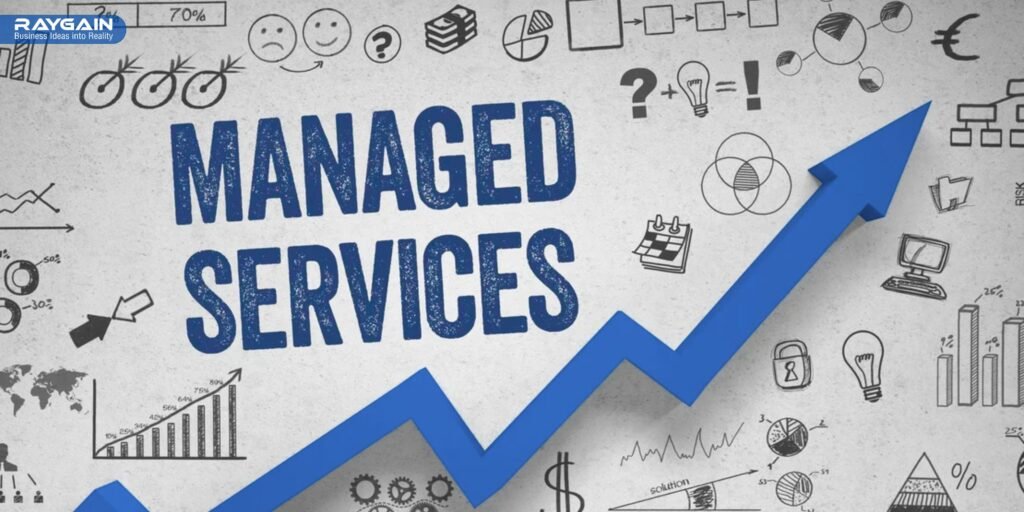In the age of digital transformation, businesses rely heavily on robust IT infrastructure to remain competitive and efficient. With rising demands for secure, scalable, and cost-effective solutions, many organizations are faced with a crucial decision: should they build an in-house IT team or partner with a Managed Services provider?
The answer lies in understanding the strategic value and long-term benefits that Managed Services offer. Here’s why choosing Managed Services over in-house IT could be the more brilliant move for your business.
1. Cost Efficiency Without Compromise
Hiring and maintaining a full-fledged in-house IT team can be expensive. From salaries and training to equipment and office space, the costs can quickly pile up. Managed Services, on the other hand, provide access to expert support at a predictable monthly fee—eliminating the financial burden of onboarding, infrastructure, and ongoing management.
With Managed Services, businesses can redirect their resources towards core operations and strategic growth initiatives rather than managing internal IT challenges.
2. Access to a Team of Experts
Technology constantly evolves, and keeping up with it requires ongoing training and expertise. Managed Services providers bring a team of highly skilled professionals who are experts in cybersecurity, cloud solutions, data backup, and network management.
This level of specialization is difficult (and expensive) to replicate in-house, especially for small to mid-sized businesses.
3. Scalability for Growing Businesses
One of the most significant advantages of Managed Services is flexibility. Whether you’re scaling up due to expansion or need to downsize temporarily, Managed Services can adapt quickly to your needs.
Instead of hiring or letting go of employees, you can modify your service level agreement (SLA) with your provider, ensuring that your IT resources always align with your business goals.
4. 24/7 Monitoring and Proactive Support
Unlike traditional in-house teams that usually work 9-to-5, Managed Services offer round-the-clock monitoring and support. This proactive approach ensures that issues are identified and resolved before they affect your operations.
Downtime can be expensive and damaging to your reputation. Managed Services minimize this risk by delivering real-time alerts, automated maintenance, and rapid incident response.
5. Enhanced Cybersecurity
In an age where cyber threats are growing in frequency and complexity, businesses can’t afford to be unprepared. Managed Services provides comprehensive cybersecurity solutions—firewalls, antivirus, endpoint protection, intrusion detection, and more.
They also ensure compliance with industry regulations and data protection laws, giving your business an added layer of trust and security.
6. Focus on Core Business Goals
Managing IT infrastructure internally can distract from core business functions. With this, you can offload IT responsibilities to experts and concentrate on what you do best—growing your business, improving customer experience, and innovating in your field.
This shift not only boosts productivity but also improves operational efficiency across departments.
7. Predictable IT Spending
Budgeting for IT can be unpredictable with in-house teams—unexpected hardware failures, sudden upgrades, or emergency repairs can spike your expenses. Managed Services operates on a subscription model, offering fixed monthly rates and transparent pricing.
This predictability helps you manage your finances better and plan for the future without surprise costs.
8. Quick Deployment of New Technologies
When adopting new technologies, in-house teams often face delays due to skill gaps or limited resources. Managed Service providers are always up to date with the latest tech and have the expertise to implement them swiftly and smoothly.
From migrating to the cloud to setting up remote work systems, Managed Services ensure a seamless digital transformation process.
9. Disaster Recovery and Data Backup
Data loss due to hardware failure, cyber-attacks, or natural disasters can cripple a business. Managed Services include regular data backups, and disaster recovery plans to ensure business continuity even during critical incidents.
With offsite backups and failover systems in place, your data remains secure and accessible at all times.
10. Competitive Advantage
Partnering with a Managed Services provider gives your business a competitive edge. You gain access to the latest technologies, expert-level support, enhanced security, and the agility to adapt quickly to market changes—without the time and cost it takes to build this internally.
Why Choose Raygain for Managed Services?
At Raygain, we specialize in delivering tailored Managed Services that align with your business objectives. Whether you’re a startup or an enterprise, our scalable solutions cover everything from IT infrastructure and cloud management to cybersecurity and 24/7 support.
We don’t just manage your IT—we help you unlock growth, reduce complexity, and future-proof your operations. Our client-centric approach, with a global talent pool and cutting-edge tools, makes us the trusted partner for businesses across industries.
Conclusion
While building an in-house IT team may seem like a traditional approach, the advantages of Managed Services far outweigh the challenges. From cost savings and scalability to enhanced security and expert support, Managed Services empower businesses to focus on growth, innovation, and long-term success.
If you’re ready to transform your IT strategy and streamline operations, now is the time to explore Managed Services with Raygain.










